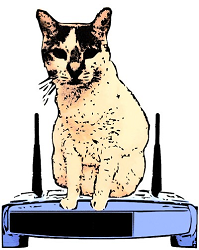Fog Mediated Data Sharing: Trustworthy Data Sharing in the Internet of Everything
This project is at the intersection of two emerging technology trends that require renewed approaches to the age-old trade-off between personalized services and data privacy. The first trend is the Internet of Things (IoT), which broadens the Internet from a network composed of a well-defined and generally fixed set of device categories to a network that includes everyday physical objects. This significant increase in the number of Internet-addressable devices streaming high-resolution sensing data results in a significantly increased availability of data regarding the spatiotemporal context these connected devices inhabit. The second trend is the prevalence of predictive models leveraging Deep Learning. In most cases, deep learning services can be improved by training a bigger model or adding more training data without running into constraints due to overfitting or necessarily incurring errors due to bias and variance. Taken together, these trends result in unprecedented access to and demand for data. This demand for data will likely continue as we see more commercially successful applications of machine learning (e.g., driverless vehicles and natural-language processing).
We introduce proximal domains and fog mediation which are, respectively, hardware-enforced trusted computing extensions and systems security designs patterns that apply trusted computing principles to the unique performance and security challenges of the Internet of Things. Fog mediated data sharing enables proximal domains to collaboratively learn prediction models in a way that preserves end-user data ownership, effectively decoupling machine learning from the need to store the data in the cloud. This work presents an applied systems security and machine learning co-design can to (1) support a more modular and secure Internet of Things, (2) better enable resource-intensive applications to run alongside resource-constrained mobile and embedded devices and (3) achieve this while enabling end-users to retain data ownership. We evaluate trustworthy data sharing and data ownership in the context of privacy-sensitive smart home computing by deploying end-to-end applications to real-world distributed fog computing testbeds.

Acknowledgements
This project is supported in part through participation in the Northrop Grumman Cybersecurity Research Consortium. The views and conclusions contained in print and online are those of the authors and should not be interpreted as necessarily representing the official policies or endorsements, either expressed or implied, of CMU or Northrop Grumman.
